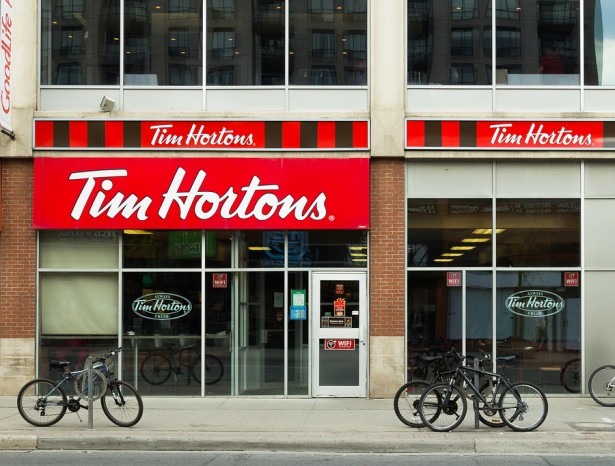Just six weeks after the controversial deal between Burger King (3G Capital) and Tim Hortons was completed, it was announced by the iconic Canadian coffee chain that it would be laying off scores of employees from its corporate headquarters in Oakville, Ontario.
In addition to its head office in Oakville, other regional offices are believed to be affected in the Ontario cities of Guelph and Kingston as well as the provinces of Alberta, British Columbia and Nova Scotia and one regional office in the United States.
The company didn’t confirm a specific number, but hundreds out of the roughly 2,000 are expected to be given the pink slip. These workers will be provided with severance packages, outplacement services and health benefits. Headquarters will remain in Oakville.

Alexandra Cygal, spokeswoman for the recently formed Restaurant Brands International Inc., told the Financial Post that it’s in the process of “reorganizing” to maintain growth and position itself for future opportunities. With the corporate synergies, there would be no need to have two accounting departments, two marketing departments, two logistics departments and so on.
“This comprehensive process has created tremendous opportunities for some of our employees in new roles and promotions,” said Cygal in a statement. “We are confident the new organization will be faster, more efficient and better-positioned for continued success.”
Late last year, it was agreed upon with the Canadian federal government that its frontline staff wouldn’t be affected with this merger. The agreement did not include headquarters staff.
The U.S.-based Burger King acquired Tim Hortons last year in a $12.6 billion deal of a whopper that merged the brands and placed under the Restaurants Brand International, which is now the third-largest fast-food restaurant in the world today.
The layoff shouldn’t surprise anyone, says David Macdonald, senior economist at the Canadian Centre for Policy Alternatives, who told the Toronto Star that firings were expected in the business community. The think tank noted that 3G Capital is known for slashing costs in order to maintain a lean operation as well as to pay off debt.
Macdonald added that franchises across the country will likely have less support from head office moving forward.
Other analysts say both Burger King and Tim Hortons simply aren’t growing and they need to enforce these cost-cutting measures in order to remain competitive in the struggling fast-food industry, which is currently undergoing a revamping of sorts as consumers’ food habits are changing into healthier ones.
As we reported at the time, this merger garnered huge attention, particularly from government officials in the U.S. and Canada. President Obama even chimed in and argued that these corporations are taking advantage of tax loopholes and the nation’s resources. Meanwhile, New Democratic Party officials were concerned about jobs and another foreign company owning a well-known Canadian brand.
The Canadian labor market has been battered in recent months. Last week, it was announced that Target would be exiting the Great White North, closing down 133 stores and laying off more than 17,000 employees. Sony also confirmed it was shutting down its dozen or so stores as it focuses its attention on its ecommerce business model.




